
The 'One Man Regiment'
In the middle years of the 1930s the North Irish Horse became the subject of some good-natured jests and gained the title ‘the one-man regiment’. The regiment had been ‘disembodied’ since 1920, existing in name only, with no rank and file and an ever-shrinking list of officers. By 1930 the Army List showed just four – Honorary Colonel the Earl of Shaftesbury, Honorary Chaplain the Reverend Walter Auchinleck Stack (who had held the position since 1904), Major Sir Ronald Deane Ross and Captain Thomas William Hughes.
After Hughes retired in 1934, Major Ross was the last remaining serving officer. It was probably he who coined the term 'One Man Regiment', telling guests at a dinner of the Irish Society in London on 18 June 1934 that:
I am an entire regiment, in fact an entire corps. If anyone will turn to the Army list, he will find that I am the only effective member of the Cavalry Militia.
Soon after this the Belfast Telegraph reported that:
Major Ronald Ross, M.P., Derry's representative in the Imperial Parliament, has a unique distinction in that he is Britain's only one-man regiment and the only remaining horse militiaman in Britain.
He is the only person entitled to wear the uniform, green with white facings and a green plume, of the Irish Horse Militia. He has to give himself orders - and obey them.
The unit has not been recruited since the war, and the only personnel left is Major Ross.
The Earl of Shaftesbury is honorary colonel, and there is an honorary chaplain.
An official at the War Office states that the regiment exists only on paper. Major Ross happens to be the one member left.
"According to military regulations the militia will have to carry on till the major is retired," he stated. "What would happen in the case of war I cannot say!"
The 'one man regiment' term stuck. When retailer Moss Bros produced An Illustrated Army List, a gentle parody of the official list of officers, it included an entry for the North Irish Horse mocking in poetry and picture its status as a regiment lacking officers and men.
Have ye ivver heard the story of that famous Oirish Rigimint,
The loikes of it was never seen from Larne to Donegal,
And they look so foine in green and whoite, though faith Oi’ll give ye just a hint
There’s not a Captain in it nor a Corporal at all:There’s a Colonel and, begorra, there’s an honorary Chaplain, too,
That’s there to tache the bhoys to be a credit to the corps,
And if they had some shquadrons, sure ‘tis foine they’d look and iligint
With their green plumes all a-wavin’ and the Colonel to the fore.They never sound reveillé, faith, they haven’t any thrumpeterr,
And there’s divil a liftinint or a sargint in the force,
But when the bugle blows for the bhoys to go to war,
They’ll be ridin’ off to glory on the North Oirish Horse.
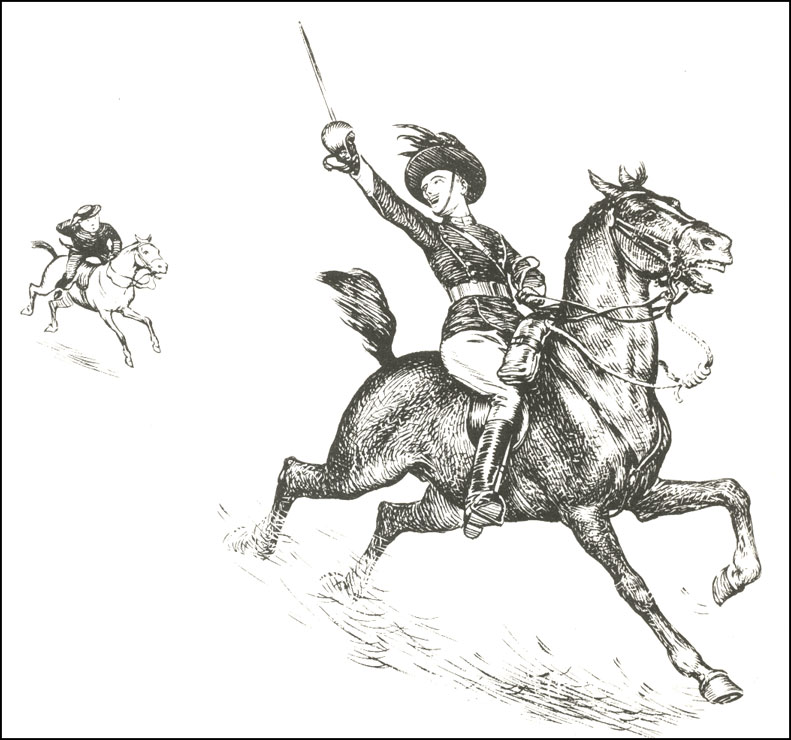
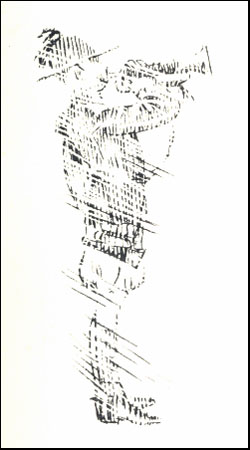
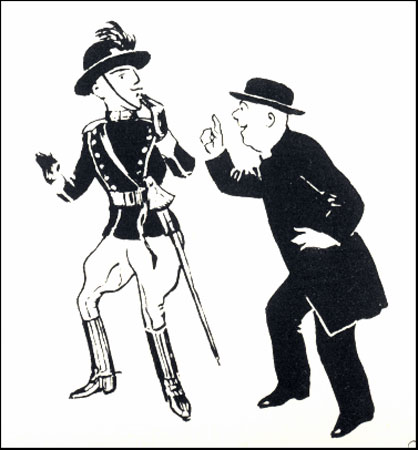
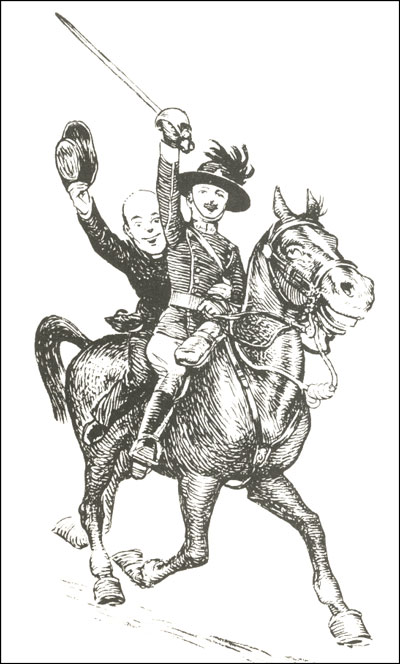
On 14 July 1936 in the House of Commons Harold Balfour asked a series of questions about the regiment, including: what were the duties of the honorary chaplain, how many church parades had been held during the past two years, and ‘whether the attendance had been voluntary or compulsory’. To general merriment, the Secretary of State for War (Duff Cooper) responded that the North Irish Horse … has been left in what I can perhaps best describe as a state of suspended animation. All the other ranks of this unit having completed their engagements, and recruiting for it being suspended, the strength at present consists of one officer only. In these circumstances my hon. and gallant friend’s questions do not arise.
Mr Cooper went on to say that while the regiment "may not fulfil any important purpose it certainly does not do any harm".
Following reports of this exchange, the Londonderry Sentinel reproduced the following poem published in The Morning Post.
The North Irish Horse
Is a very striking force,
With its honorary colonel and a chaplain who of course,
Holds the usual church parade,
Or would do so, though unpaid,
If the regiment were up to strength. It isn't, I'm afraid.No indeed! It's evident
That this splendid regiment
If called upon to fight the foe would very soon be shent.
In fact I'll lay a wager
That if called on to engage or
Reconnoitre, 'twould be no time ere it lost its gallant major.For he, it's strange to tell
Is the total personnel
Of a very gallant unit that made light of shot and shell,
When the war was at its height,
And the Ulstermen were right –
As has always been their habit – in the thickest of the fight.But peace must take its course,
And the North Irish Horse
Is now the smallest unit in a much depleted force;
But I'd like to think we could,
If it happens that we should
Be embroiled in further warfare, muster others half as good.
Two years later, when Major Ross reached the fifty-year age limit and retired, the North Irish Horse was widely reported as having 'disappeared' or 'ceased to exist'. The Daily Express reported its passing with a blank section purporting to be a photograph of the regiment’s last roll call.
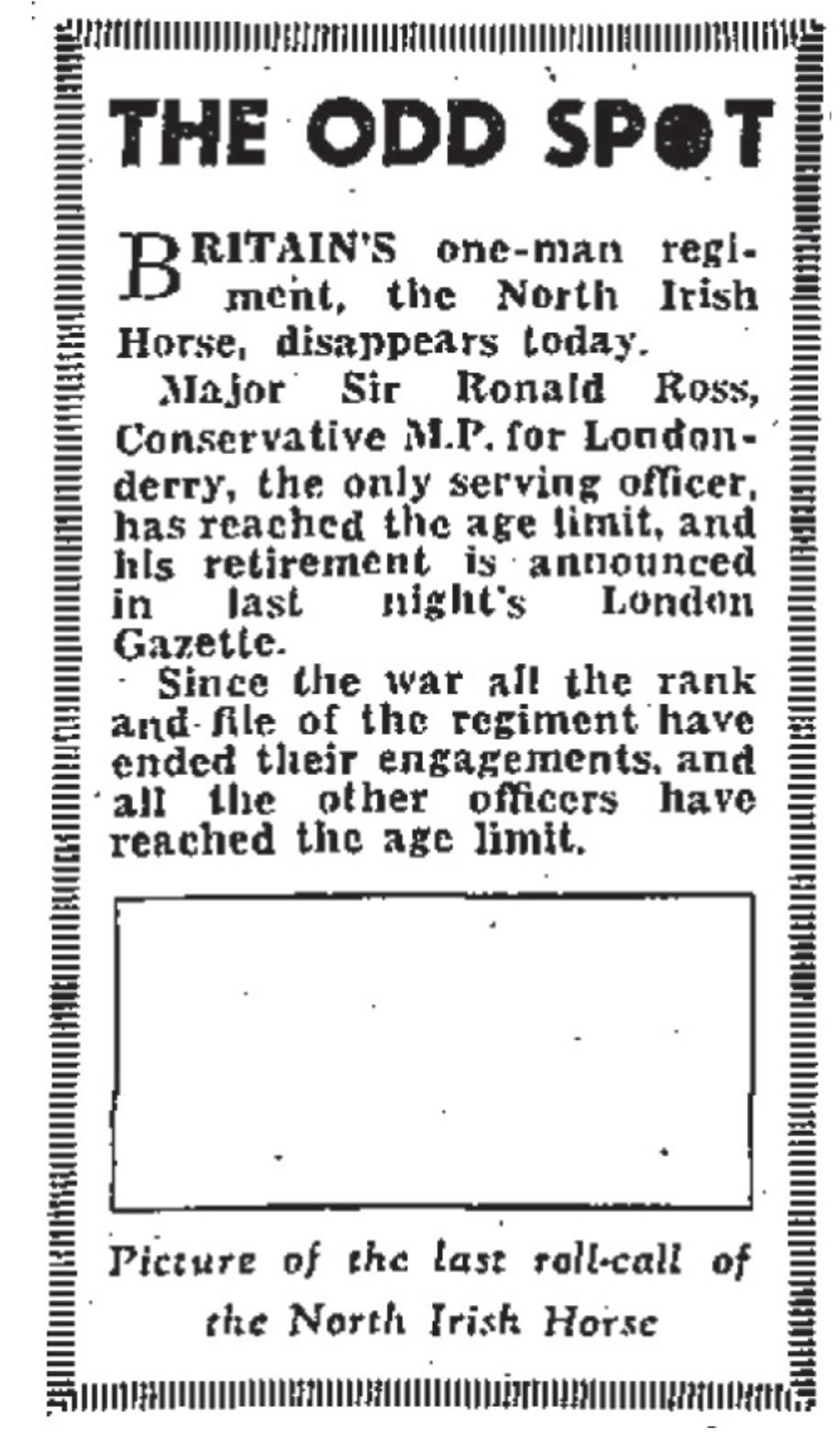
The Daily Express, 13 July 1938

The Sketch, 20 July 1938
With the approach of war with Germany in 1939, the North Irish Horse was revived as a mechanised unit, initially under the command of Major Ross.
This page last updated 25 March 2024.
